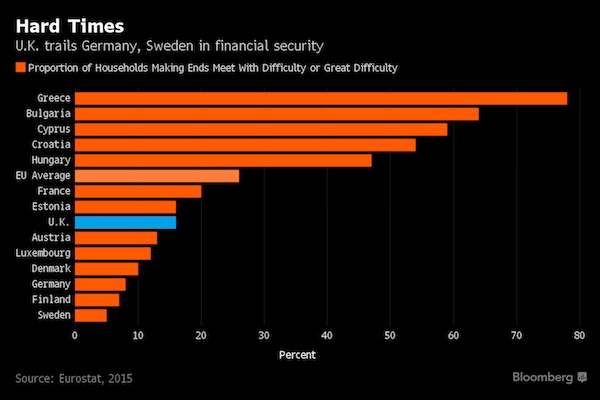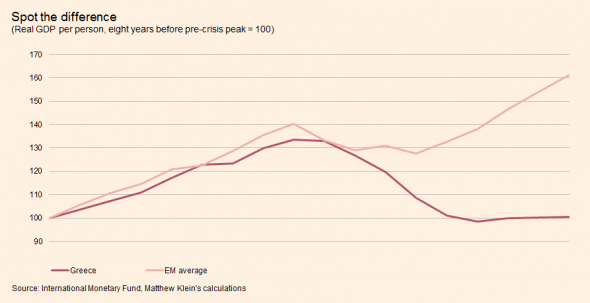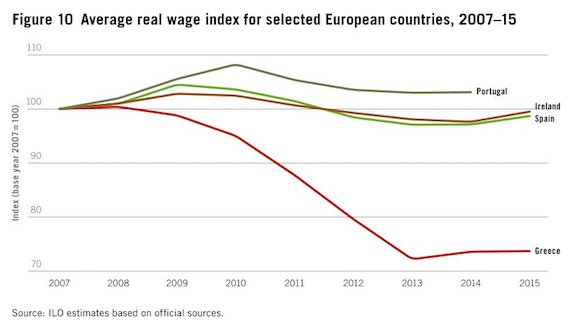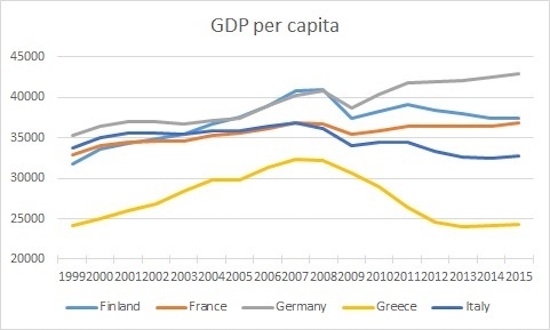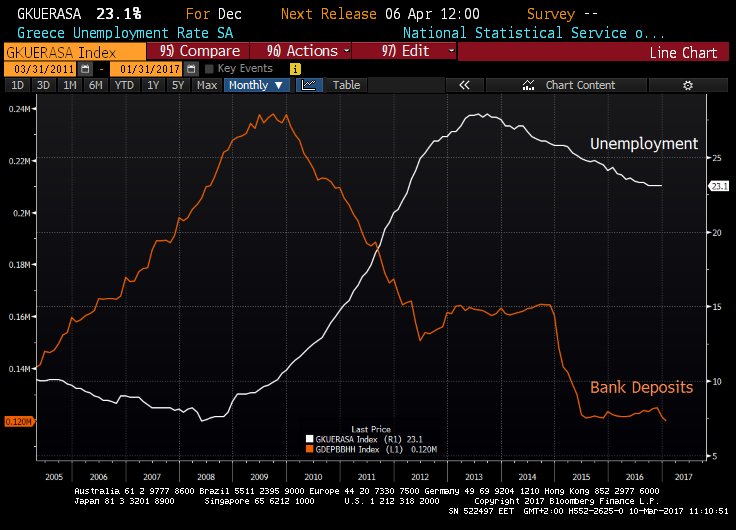
Jack Delano. Engine taking on coal at Illinois Central Railroad yard, Chicago Nov 1942
Amidst the heightened media hysteria that expresses itself in claims of an “increasing burden of proof” of Putin and separatist involvement in the MH17 crash, where there is still no proof anywhere to be seen after 5 days, events are taking a sharp left (can’t bring myself to say ‘right’) turn towards a new, next, phase. Which promises to not be pretty. It’s, as we say, on.
With the earthly remains of the victims now outside the rebel controlled area, even the Dutch government starts talking about more, and more severe, sanctions against Russia. While, I can’t repeat this enough, there is no proof of any Russian involvement that has been shared by any ‘authority’, with either the media – who’ve proven they need no proof, since it just gets in the way of the story – or the public – who follow the “justified anger” of the herd -. Perhaps that alone should tell us plenty about what is going on behind the scene, and what that next phase is.
There’s a black irony in hearing the Dutch PM say that the victims’ bodies are now in ‘safe’ territory, i.e. that part of Ukraine which is under Kiev control. If there is once source of info that has proven to be beyond unreliable, since the February coup but certainly in the past 5 days, it’s the Kiev government.
Kiev’s claims about the ‘terrorists’ tampering with, if not desecrating, the bodies? The bodies are in reasonable to good state, declared the investigators yesterday (considering, of course, they fell 33,000 feet before they hit the ground). Tampering with the black boxes? They look fine, said the Malaysian colonel who took possession of them. But the accusations hover in the media-controlled air.
Here’s guessing you’d be hard pressed to find one inch of actual truth in any media report issued since Thursday by the Kiev government. Which is in place because “we” put it there and support it. Which ordered its army, less than 24 hours after the crash, to keep shelling the civilian population of parts of east Ukraine, knowing full well that might hamper the investigation of the crash.
No, the ‘terrorists’ don’t trust Kiev, for obvious reasons, and they don’t trust the US or EU for equally obvious reasons, since the latter put Yatsenyuk and Poroshenko in place, and these are the people who order the killing of their friends and families. There’s not that much difference between the Gaza strip and the people’s republic of Donetsk. Both get shot at an awful lot, both bury friends and loves ones on a daily basis, and both are trapped and cornered and have nowhere else to go. There is a point where ‘who started’ becomes an irrelevant question; most of us learn that when we’re 5-6 years old.
And I can’t leave out that the New Yorker quotes Joe Biden as saying that Putin “has no soul”. That is on exact over-the-top par with the proverbial age old accusations against those you’d want to wage war against: that they eat babies. It’s also nice and darkly funny because George W., when he met Putin, said he could “see into his soul”. Biden: stupid warhorse. Anyone who listens to another word he says: not very bright. Since time immemorial, people have painted off their – perceived – enemies as inhuman animals. Check: the separatists.
Before I get to that next phase I mentioned, first of all here’s a few statements and questions, as formulated by Ron Paul and the Russian military, that may serve as a way to tell truth from fantasy. I could ask a hundred more myself, but let’s have these things be asked and stated by others. And by all means, let’s have our governments answer them. How hard can it be? Or as Ron Paul puts it: Is it so hard to simply demand a real investigation? We don’t think Russia or the ‘rebels’ can be trusted to conduct an impartial investigation. They think the same about us. And how wrong are they in that, really?
Ron Paul: What the Media Won’t Report About MH17
Just days after the tragic crash of a Malaysian Airlines flight over eastern Ukraine, Western politicians and media joined together to gain the maximum propaganda value from the disaster. It had to be Russia; it had to be Putin, they said. President Obama held a press conference to claim – even before an investigation – that it was pro-Russian rebels in the region who were responsible. His ambassador to the UN, Samantha Power, did the same at the UN Security Council – just one day after the crash! While western media outlets rush to repeat government propaganda on the event, there are a few things they will not report.
- They will not report that the crisis in Ukraine started late last year, when EU and US-supported protesters plotted the overthrow of the elected Ukrainian president, Viktor Yanukovych. Without US-sponsored “regime change,” it is unlikely that hundreds would have been killed in the unrest that followed. Nor would the Malaysian Airlines crash have happened.
- They will not report that the post-coup government in Kiev has, according to OSCE monitors, killed 250 people in the breakaway Lugansk region since June, including 20 killed as government forces bombed the city center the day after the plane crash! Most of these are civilians and together they roughly equal the number killed in the plane crash. By contrast, Russia has killed no one in Ukraine, and the separatists have struck largely military, not civilian, targets.
- They will not report that the US has strongly backed the Ukrainian government in these attacks on civilians, which a State Department spokeswoman called “measured and moderate.”
- They will not report that neither Russia nor the separatists in eastern Ukraine have anything to gain but everything to lose by shooting down a passenger liner full of civilians.
- They will not report that the Ukrainian government has much to gain by pinning the attack on Russia, and that the Ukrainian prime minister has already expressed his pleasure that Russia is being blamed for the attack.
- They will not report how similar this is to last summer’s US claim that the Assad government in Syria had used poison gas against civilians in Ghouta. Assad was also gaining the upper hand in his struggle with US-backed rebels and the US claimed that the attack came from Syrian government positions. Then, US claims led us to the brink of another war in the Middle East. At the last minute public opposition forced Obama to back down – and we have learned since then that US claims about the gas attack were false.
Of course it is entirely possible that the Obama administration and the US media has it right this time, and Russia or the separatists in eastern Ukraine either purposely or inadvertently shot down this aircraft. The real point is, it’s very difficult to get accurate information so everybody engages in propaganda. At this point it would be unwise to say the Russians did it, the Ukrainian government did it, or the rebels did it.
Is it so hard to simply demand a real investigation?
The Russian military, which for western media are of course the devil incarnate, poses a number of questions:
10 More Questions Russian Military Pose To Ukraine, US Over MH17 crash
Russia has released military monitoring data, which shows Kiev military jets tracking the MH17 plane shortly before the crash – and posed yet another set of questions to Ukraine and the US over the circumstances of the tragedy. Military officials – chief of General Staff of the Armed Forces Lt. Gen. Andrey Kartopolov and chief of the Air Force Main Staff Lt. Gen. Igor Makushev – posed a number of questions to Kiev and Washington concerning the possible causes of the catastrophe in Eastern Ukraine that killed almost 300 people last Thursday.
1. Why did the MH17 plane leave the international corridor?
2. Was MH17 leaving the route a navigation mistake or was the crew following instructions by Ukrainian air traffic controllers in Dnepropetrovsk?
3. Why was a large group of air defense systems deployed to the militia-held area if the self-defense forces have no planes?
5. On the day of the crash Kiev increased activity on its Kupol-M1 9S18 radars, which are components of the Buk system in the area. Why?
6. What was a military plane doing on the route intended for civilian flights? Why was the military jet flying at almost the same time and the same altitude with a passenger plane?
8. Where did the launcher – from the video circulated by Western media and showing a Buk system being moved allegedly from Ukraine to Russia – come from? As the video was made on the territory controlled by Kiev, where was the launcher being transported? Where is it right now? Why are some of the missiles missing on the launcher? When was the last time a missile was launched from it?
10. Why haven’t US officials revealed the evidence supporting claims that the MH17 was shot down by a missile launched by the militia?
My own main question, if I had only the one, would be something like: Supposing it was the Ukrainian army who shot down the plane (even just accidentally), how would that affect statements from western media and politicians? For now, looking at what solid proof we have and what we don’t, it’s just as possible, and just as likely, as the ‘rebels’ having done it. Or the US army. Or Blackwater.
To what lengths do you think ‘we’ would go to cover up such an event if it had indeed happened? I think you can answer that for yourself.
And besides, even if the rebels were the ones who shot down the plane, and again there is not proof for that, that should probably be a reason to make sure the conflict between them and the US installed Kiev “government” is halted, so no-one there has any reason to ever fire on a plane again. Or on innocent women and children, for that matter. But no such initiative is apparently seen as useful. The reason for that leads us to ‘phase next’: economic warfare.
All the accusations and insinuations that have been uttered in increasing frequency and fever pitch lead into what has been prepared for years: break Putin’s, and Russia’s, power. It doesn’t matter what it takes, it doesn’t matter how many people have to die to achieve it, Putin controls oil and gas, just like Saddam did, and he therefore has to be brought down.
What better way to achieve that than to use a terrifying deadly event and, evidence be damned, blame it on the man you want to topple? And squeeze his financial wherewithal while you’re at it.
The US could invade Iraq and topple Saddam. They can’t do the same with Russia and Putin. So, economic warfare it is.
The main proponents of economic warfare are from the Anglo Saxon world and the Baltics. Australian PM Abbott increasingly sounds like he’s on the 180º wrong drugs. The ones UK PM Cameron takes are not much better. And the rest of Europe follows in their footsteps, not all all that eager, but too afraid of the soaring eagle looking for the fossils to power its empire.
Ambrose Evans-Pritchard, in his own unique – often erroneous – style, leads the information vanguard:
Russia Vastly Outgunned In Economic Showdown With West
The economic showdown unfolding between Russia and the West is almost entirely one-sided. The US has the power to bring Russia to its knees through hegemonic control over the world’s banking system, using an array of lethal financial weapons developed by a cell at the US Treasury, and already deployed against Iran and North Korea.
Richard Christopher Granville, from Trusted Sources, said the US “crossed the Rubicon” last week even before the apparent missile strike against Malaysia Airlines flight 17, imposing sanctions that effectively shut the energy trio of Rosneft, Novatek, and Gazprombank out of international finance. “The Americans have the power to throttle Russia unilaterally because no European or Western bank of any importance is going to defy the US after the fines imposed on BNP Paribas,” he said.
Good to note that the game was on way before the MH17 crash.
“What has been holding them back is fear of a damaging split between the US and Europe, since it is Europe that suffers the full blow-back from sanctions. This issue has been blown away completely by the crash. Europe’s leaders now have a duty to their own citizens to be tough,” he said. Mr Granville said the yawning gap that was building up last week between the two sides of the Atlantic has suddenly closed, making it much harder for Russian president Vladimir Putin to keep playing Europe off against America.
Europe’s anger over the apparent missile strike and the abuse of the crime scene has denied him his last trump card. Former Russian premier Mikhail Kasyanov told Bloomberg that any further escalation of sanctions to “tier 3” action against the whole financial sector will cause the economy to “collapse in six months”. [..]
Perhaps, but at the same time, let’s not forget that Europe’s anger is based on nothing but spin and allegations.
Europe remains starkly divided over calls for “tier 3” measures against key pillars of the Russian economy, with EU officials warning that any such action risks spinning out of control and suffocating Europe’s fragile economic recovery. While Britain’s David Cameron called for “a new range of hard-hitting economic sanctions”, the body language was very different in southern capitals.
Spain’s foreign minister, José Manuel García-Margallo, refused to criticise Mr Putin on Monday, and insisted that the EU should not prejudge the crash investigation. Mr Cameron said “tier 3” measures must be spread across the key sectors of finance, energy and Russian defence in order to share the pain. If it is restricted to financial sanctions, the City of London will suffer a disproportionate hit since it serves as Russia’s offshore hub for raising debt and issuing equity.
Mr. García-Margallo says what everyone should be saying, but has forgotten in the hunt for a guilty party. Many a lynching party in the southern US, and throughout the world through time, was conducted in that fashion.
France has so far refused to give up a €1.2 billion sale of Mistral warships to Russia. “Frankly, in this country, it would be unthinkable to fulfil an order like the one outstanding that the French have,” said Mr Cameron in the House of Commons. Germany’s Angela Merkel did not even mention further sanctions in her statement over the weekend, and will clearly resist any serious measures against Russian gas suppliers. Diplomats say Tuesday’s meeting of EU foreign ministers is likely to be a holding action with token gestures until there is more clarity on the crash. But that is small comfort for Russia.
The US has an arsenal of measures that it can roll out, and intends to do so to punish the Kremlin for redrawing Europe’s borders by force. The sanctions so far target long-term finance beyond 90 days maturity. This is slow suffocation. The International Energy Agency says Russia needs $750 billion of fresh investment over the next 20 years – and imported Western technology – just to stop oil and gas output declining.
Is it the Kremlin, or the White House, that has ‘redrawn Europe’s borders by force?” Or, in different words, does the US care one bit about European borders? Yeah, right. The goal is Russia’s fossil fuels. And Europe blindly follows the call to war, because people like Cameron know how vulnerable and “energy empty” their nations are. Nothing to do with any plane crash, that’s just a handy excuse that’s being played for all it’s worth.
The measures have frozen almost all Russian companies and banks out of the global capital markets. This matters because they owe most of Russia’s $715 billion in foreign currency debt. They cannot roll over $10 billion coming due each month. This is not yet a major problem. Russia’s oil giant Rosneft has $20 billion of cash reserves. Yet Moody’s issued a credit warning on the company on Monday, saying it must repay $26 billion by December next year, with peak repayment demands over this winter.
The longer the stand-off with the West goes on, the more serious it becomes. Sberbank said the government may have to step in with emergency funding for companies but this would eventually raise questions about the Russian state itself.
Does this perhaps tell us something about why Janet Yellen is on her way to taper QE and let the US dollar rise to super dollar status? A higher buck would greatly increase the pressure on Putin. Too late for that BRICS ‘banking union’.
The US can at any time tighten the noose. There are reports from Washington that it may soon start to use the nuclear option of money-laundering and terrorist laws to cut off all operational finance for targeted Russian companies, effectively preventing any major bank acting as a counter-party on any transaction. In extremis, this could paralyse much of Russia’s oil and gas industry, reducing it to cash transactions.
The great question is whether China would come to the rescue with loans and trade conduits in defiance of the Western world, if it is shown beyond doubt that Mr Putin’s proxy forces shot down an Asian airliner. “The Chinese will not cut him any slack,” said Mr Granville.
That last bit is the main issue: 5 days after the MH17 crash, nothing has been shown beyond doubt. All we’ve seen so far is innuendo. It would all be so much easier if the US shows us, and the media, the proof it claims to have. Nothing to date. So when Obama asks what the ‘rebels’ have to hide when they don’t give researchers – which as far as they know could well include CIA etc. – full access to the disaster scene, we all have the right to ask the US president what he has to hide in view of the fact that he hasn’t provided one piece of solid evidence.
Until he does, I would tend to lean towards economic, political and energy warfare as the underlying theme to the entire situation. But I’m open to being corrected by any and all proof America’s brilliant, highly sophisticated and powerful intelligence community has to offer.
There is a picture being painted before our eyes that is demonstrably false, simply because it relies on blaming parties for things our governments and media have not provided any proof for. And I’ll say it once more: the one thing we, at this time, do have proof of, is that painting such a fantasy picture demonstrates a grave lack of respect for the people who died, and for their loved ones.









• Russia Vastly Outgunned In Economic Showdown With West (AEP)
The economic showdown unfolding between Russia and the West is almost entirely one-sided. The US has the power to bring Russia to its knees through hegemonic control over the world’s banking system, using an array of lethal financial weapons developed by a cell at the US Treasury, and already deployed against Iran and North Korea. Richard Christopher Granville, from Trusted Sources, said the US “crossed the Rubicon” last week even before the apparent missile strike against Malaysia Airlines flight 17, imposing sanctions that effectively shut the energy trio of Rosneft, Novatek, and Gazprombank out of international finance. “The Americans have the power to throttle Russia unilaterally because no European or Western bank of any importance is going to defy the US after the fines imposed on BNP Paribas,” he said.
“What has been holding them back is fear of a damaging split between the US and Europe, since it is Europe that suffers the full blow-back from sanctions. This issue has been blown away completely by the crash. Europe’s leaders now have a duty to their own citizens to be tough,” he said. Mr Granville said the yawning gap that was building up last week between the two sides of the Atlantic has suddenly closed, making it much harder for Russian president Vladimir Putin to keep playing Europe off against America. Europe’s anger over the apparent missile strike and the abuse of the crime scene has denied him his last trump card. Former Russian premier Mikhail Kasyanov told Bloomberg that any further escalation of sanctions to “tier 3” action against the whole financial sector will cause the economy to “collapse in six months”.
Read more …

• Ron Paul: What the Media Won’t Report About MH17 (Ron Paul Inst.)
Just days after the tragic crash of a Malaysian Airlines flight over eastern Ukraine, Western politicians and media joined together to gain the maximum propaganda value from the disaster. It had to be Russia; it had to be Putin, they said. President Obama held a press conference to claim – even before an investigation – that it was pro-Russian rebels in the region who were responsible. His ambassador to the UN, Samantha Power, did the same at the UN Security Council – just one day after the crash! While western media outlets rush to repeat government propaganda on the event, there are a few things they will not report.
• They will not report that the crisis in Ukraine started late last year, when EU and US-supported protesters plotted the overthrow of the elected Ukrainian president, Viktor Yanukovych. Without US-sponsored “regime change,” it is unlikely that hundreds would have been killed in the unrest that followed. Nor would the Malaysian Airlines crash have happened.
• The media has reported that the plane must have been shot down by Russian forces or Russian-backed separatists, because the missile that reportedly brought down the plane was Russian made. But they will not report that the Ukrainian government also uses the exact same Russian-made weapons.
• They will not report that the post-coup government in Kiev has, according to OSCE monitors, killed 250 people in the breakaway Lugansk region since June, including 20 killed as government forces bombed the city center the day after the plane crash! Most of these are civilians and together they roughly equal the number killed in the plane crash. By contrast, Russia has killed no one in Ukraine, and the separatists have struck largely military, not civilian, targets.
• They will not report that the US has strongly backed the Ukrainian government in these attacks on civilians, which a State Department spokeswoman called “measured and moderate.”
• They will not report that neither Russia nor the separatists in eastern Ukraine have anything to gain but everything to lose by shooting down a passenger liner full of civilians.
• They will not report that the Ukrainian government has much to gain by pinning the attack on Russia, and that the Ukrainian prime minister has already expressed his pleasure that Russia is being blamed for the attack.
• They will not report that the missile that apparently shot down the plane was from a sophisticated surface-to-air missile system that requires a good deal of training that the separatists do not have.
• They will not report that the separatists in eastern Ukraine have inflicted considerable losses on the Ukrainian government in the week before the plane was downed.
• They will not report how similar this is to last summer’s US claim that the Assad government in Syria had used poison gas against civilians in Ghouta. Assad was also gaining the upper hand in his struggle with US-backed rebels and the US claimed that the attack came from Syrian government positions. Then, US claims led us to the brink of another war in the Middle East. At the last minute public opposition forced Obama to back down – and we have learned since then that US claims about the gas attack were false.
Of course it is entirely possible that the Obama administration and the US media has it right this time, and Russia or the separatists in eastern Ukraine either purposely or inadvertently shot down this aircraft. The real point is, it’s very difficult to get accurate information so everybody engages in propaganda. At this point it would be unwise to say the Russians did it, the Ukrainian government did it, or the rebels did it. Is it so hard to simply demand a real investigation?
Read more …

• Draghi Cedes Euro Control to Yellen on Fed Rate Wagers (Bloomberg)
Mario Draghi’s ambitions to weaken the euro are at the mercy of Federal Reserve Chair Janet Yellen. The U.S. central bank chief sent the euro sliding below $1.35 last week for the first time since February when she said U.S. interest rates may rise sooner than investors expect. Her European Central Bank peer is having less impact: Draghi’s unprecedented decision to drop a key interest rate to below zero last month pushed the shared currency up 0.2% before Yellen’s speech. The euro is also losing its link with the continent’s bond market, as its correlation to the yield spreads of Italy, Spain and Portugal approaches zero. Dealers in euro-dollar, the world’s most-traded currency pair, say they’re increasingly influenced by the U.S. because they’ve assimilated the interest-rate cuts Draghi unveiled and concluded he has no further surprises in store.
The prospect of a Fed rate boost is also deemed more important than the conflict in the Gaza Strip and international anger over the downing of a Malaysian airliner last week in Ukraine. “The market is completely ignoring the European news,” Brad Bechtel, the managing director of Faros Trading LLC in Stamford, Connecticut, said yesterday in a phone interview. “So when the dollar moves, it’ll move, but anything European-specific is not enough. Euro-dollar is also seemingly ignoring all geopolitical noises, whether it’s Russia and Ukraine or Gaza.” Yellen’s testimony to lawmakers in Washington July 15-16 hastened the breakdown in the link between the euro and bonds, after appetite for European debt helped push the shared currency up by 4.2% in 2013, its biggest advance in six years.
“Euro-dollar is now moving as a function of the Fed,” Sebastien Galy, a senior currency strategist at Societe Generale SA in New York, said yesterday in a phone interview. “For the few years since 2010, euro-dollar moved because people were seeking to sell or buy a European risk premium in a very mechanical fashion” before that correlation collapsed, he said. A waning ability to influence the euro will prove frustrating for Draghi, who said July 14 that the relative strength of the 18-nation currency poses a risk to the economy. The exchange rate rose 0.1% that day.
Read more …

• Carney in ‘Lap of the Gods’ as UK Rebalancing Drive Stalls (Bloomberg)
Mark Carney joined the Bank of England heralded as a superman. While he’s gone some way toward revolutionizing the three-century-old institution, there’s not much he can do to achieve a balanced recovery. The BOE governor is set to address an international audience of business representatives tomorrow in Glasgow, with Britain struggling to entrench a revival in exports as business investment and consumers drive the U.K. economy. The obstacles Carney faces are the sluggish euro-region economy and the drag of the strengthening pound. While European Central Bank President Mario Draghi is expanding stimulus, until Europe is ready to buy more from Britain the goal of a shift away from household spending may remain elusive. “It’s in the lap of the gods and Mario Draghi as to whether the bank can get the economy to rebalance the way it wants,” said Richard Barwell, an economist at Royal Bank of Scotland Group Plc and a former BOE official.
“We need much stronger domestic demand in the euro zone and there’s not much Carney can do about that. Given the choice between a beautifully balanced recovery that’s more tepid and the one they’ve got, they’ll take the one they’ve got.” The U.K. economy expanded 0.8% in the second quarter, according to a survey of economists before the July 25 report. That would match the pace of the first three months of the year and mark the point at which Britain has completely made up the output lost during the financial crisis. The report is a preliminary estimate and won’t include data on business investment, which jumped almost 11% in the first quarter from a year earlier, or net trade, which acted as drag on growth after exports climbed just 0.5%. Britain’s trade deficit stayed close to a record in May as manufacturers shipped fewer goods to EU nations, which buy half of all the British goods sold abroad.
Read more …

And then some.
• S&P Warns Europe Debt Market Near Pre-Crash Levels (CNBC)
European corporate debt markets have become “intoxicated” by monetary stimulus from central banks and “aggressive” transactions are in danger of reaching the excesses seen before the global financial crisis, ratings agency Standard & Poor’s has warned. “Artificially low interest rates not only encourage an inefficient allocation of capital but create the incentive for excessive speculation in financial markets that ultimately risk doing more harm than good when boom turns to bust,” Credit Analyst Paul Watters warned in S&P’s quarterly European corporate credit outlook on Monday afternoon. “The greater use of leverage and a growing number of aggressively structured transactions in the European leveraged finance market is reminiscent of some of the excesses of the 2006-2007 boom period.”
Concerns are centered on whether the right companies are benefiting from cheaply generating debt and whether they are using it in the most productive way. S&P believes that business confidence in Europe remains low, which is pushing companies to issue more debt at record-low rates than spending money on capital investment. Because companies are opting to borrow rather than invest, central bank policy is helpless in triggering a self-sustaining recovery in the region, the ratings agency added. Instead, S&P says that both the U.S. and Europe are showing trends of surging merger and acquisition volumes, high debt issuance and more leveraged buyouts. This points to an erosion of market discipline and a greater reliance on financial engineering to generate returns rather than fundamental growth. S&P adds that this to magnifies the risks in the financial world and says that the problems are even more pronounced in the U.S.
Read more …

We’ve all gotten used to this, tight?
• Junk Bond Spreads At All-Time Low: UK Gilt Yields Lowest Since 1750 (Price)
They call them ‘junk bonds’ for a reason. They now constitute an offence against linguistic decency: ‘high yield’ no longer even is. Consider the chart below:

(The index in question is a benchmark for the broad high yield bond market.)
Not for nothing did the Financial Times report at the weekend that “Retail investors are getting increasingly nervous about high-yield bonds”.

In the entire history of the UK Gilt market, yields have never been as low. This suggests that Gilt buyers at current levels are unlikely to enjoy an entirely blissful investment experience. Just to round up this analysis of bond investor hyper-exuberance, consider this last chart, which puts interest rates (in this case, the UK base rate) in their historical context:

(*The Bank Rate has comprised variously the Bank Rate, Minimum Lending Rate, Minimum Band 1 Dealing Rate, Repo Rate and Official Bank Rate.)
There is one (inverse) correlation in investment markets that is pretty much iron-clad. If interest rates go up, bond prices go down. This is entirely logical, since the coupon payments on bonds are typically fixed. If interest rates rise, that stream of fixed coupon payments loses its relative attractiveness. The bond price must therefore fall to compensate fixed coupon investors. So now ask yourself a question: in what direction are interest rates likely to go next ?
Read more …

And counting.
• China’s Debt Soars To 250% of GDP (CNBC)
China’s debt has soared to two and a half times its economy, Standard Chartered estimates, highlighting the difficulties Beijing faces in balancing growth with the risk of bubbles forming in its economy. Total financial credit has surged to 251% of gross domestic product from 147% at the end of 2008, the bank said. “The economy will continue to leverage up, and the market will remain concerned,” said Stephen Green, chief China economist at Standard Chartered. Since the financial crisis of 2008, China has relied heavily on credit to spur its high growth rates, but the alarming pace of credit growth has triggered worries for investors, especially as rapid build-ups in debt have signaled the onset of financial crises in other economies. As a result, policy makers in China have faced the difficult task of trying to slow economic growth to more sustainable levels without causing a hard landing scenario – when an economy rapidly shifts from growth to slow growth to no growth.
In recent months the government has implemented a number of easing measures designed to mildly stimulate the economy. Measures included cutting the reserve ratio requirements for banks which provided loans to the agricultural sector, for example. And their efforts appeared to have worked as second quarter growth for 2014 came in at a 7.5%, in line with the government’s annual target and up from 7.4% in the first quarter. But many analysts remain concerned about China’s growing level of credit and the risks it poses to the country’s economic health. “People have been ignoring a lot of risks out of China; look at the property market, look at how fast bad debts have been showing up in the financial system,” said David Cui, head of China equities at Bank of America Merrill Lynch. “Things have got so bad – it will probably take a financial crisis to cleanse the bad stuff out of the system – for the government to write off debt, to let banks raise more equity… and also severely reduce overcapacity,” he added.
China’s debt to GDP level is still lower than other major world economies, however. The U.S. had a total debt-to-GDP ratio of about 260% by the end of last year, while the U.K.’s ratio was at 277%. Japan topped the world table at 415%, according to Standard Chartered.
Read more …

Break it down!
• Bank of Japan Majority Won’t Be Swayed by Kuroda Ideology (Bloomberg)
More than a year after securing support at the Bank of Japan for unprecedented monetary stimulus, Governor Haruhiko Kuroda has yet to persuade most board members that they have the power to achieve their inflation target. A majority of the nine members disagree with Kuroda’s view that flooding the economy with cash is sufficient to get stable 2% gains in consumer prices, according to people familiar with their thinking. Most conclude it cannot be done without government steps to raise Japan’s growth potential, they said, asking not to be named because the discussions are private. The ideological gap, masked in public remarks by most board members, underscores why some reflationist lawmakers are still pushing for legislation that would hold the BOJ responsible for delivering on its target. Debate may become more public should calls for expanded asset purchases escalate in face of inflation falling short of the goal next year.
“There may be some members who don’t get it, so we have to make sure the BOJ law is revised,” Liberal Democratic Party lawmaker Kozo Yamamoto, who has advised Prime Minister Shinzo Abe on economic policy, said in an interview in Tokyo last week. “The BOJ has to be held accountable.” Kuroda, 69, became central bank chief in March 2013 after having been a critic for years, when he had urged an inflation target and liquidity injections to end the deflation that became entrenched in Japan in the 1990s. Abe nominated Kuroda as the new BOJ governor weeks after surging to victory in a December 2012 election on a campaign platform of reflation. [..] The former Finance Ministry bureaucrat who led the Asian Development Bank for eight years arrived at an institution that had missed early signs that consumer price declines were heading for a sustained slump. He followed a succession of governors who had argued that the role of monetary policy in fueling inflation was limited.
Read more …

That’s all she does.
• Yellen Encourages ‘Fully-Fledged Equity Bubble’: Jeremy Grantham (The Tell)
Jeremy Grantham blasts Janet Yellen and her predecessors at the Federal Reserve in his latest quarterly letter. The Fed chairwoman is “sticking faithfully” to the “clearly wrong” policies of Alan Greenspan and Ben Bernanke, writes Grantham, who is the founder of Boston-based money manager GMO and has a reputation for sniffing out market bubbles early. He says:
“She will not use interest rates to head off or curtail any asset bubbles encouraged by the extremely low rates that might appear. And history is clear: very low rates absolutely will encourage extreme speculation. But Yellen will, as Greenspan and Bernanke before her, attempt to limit only the damage any breaking bubbles might cause.”
Grantham criticizes Fed officials for not learning from history:
“I had thought that central bankers by now, after so much unnecessary pain, might have begun to compromise on this matter, but no such luck, at least in the case of the Fed. The evidence against this policy after two of the handful of the most painful burst bubbles in history is impressive. But not nearly as impressive as the unwillingness of academics to back off from closely held theories in the face of mere evidence.”
He said Yellen’s statements in early July have boosted the chances that the U.S. stock market will become completely bubbly:
“This affirmation of moral hazard – we will not move to stop bubbles, dear investors, but will help you out when things go badly wrong – should be of great encouragement to speculators and improve the odds of having a fully-fledged equity bubble before this current episode ends.”
Read more …

Tick tick tick.
• Argentina Countdown to July 30 Deadline: Default or Boom (Bloomberg)
Argentina is set to default in less than two weeks unless it reaches a deal with holders of defaulted bonds or U.S. courts grant a delay to allow the nation to continue servicing restructured bonds. U.S. Judge Thomas Griesa blocked the country’s attempt to make a June 30 bond payment, saying it must also comply with an order to pay $1.5 billion to hedge funds and other holders of defaulted bonds that sued for full repayment. As the 30-day grace period winds down, here are three possible outcomes:
1) Argentina and Holdout Creditors Reach a Deal by July 30 A settlement with creditors holding untendered securities from the nation’s $95 billion default in 2001, including billionaire Paul Singer’s NML Capital and Aurelius Capital Management, would likely be the best scenario for investors. “Most importantly it would allow Argentina to regain access to international credit markets,” said Mauro Roca, a senior Latin America economist at Goldman Sachs Group Inc. in New York. “It would ease pressure on the peso and increase international reserves.”
2. Court Issues a Stay on Ruling as Negotiations Continue A suspension of the court ruling would allow officials to continue making payments on its performing bonds while giving them more time to seek an accord with holdouts. A delay in the ruling until year-end “would eliminate the risk of the RUFO clause, and the market would start pricing in a greater chance of a settlement,” Roca said. “It’d be very positive for the credit and would open a window in the market for corporate and provincial issuance.”
3. Argentina Can’t Reach a Deal, Court Doesn’t Grant Stay Argentina would default on its 2033 bonds if it can’t reach a deal or win a stay, sparking a selloff from the current 88.3 cents on the dollar, according to Stuart Culverhouse, the global head of research at Exotix Partners LLP in London. “It’s the least-expected scenario,” Culverhouse said.
Read more …

If you’re low enough in the pecking order: prison.
• Foreign Exchange Traders Face Criminal Investigation (Guardian)
The Serious Fraud Office has launched a criminal investigation into alleged rigging of the £3tn-a-day foreign exchange markets. The move comes after around 15 authorities around the world said they were investigating allegations of collusion and price manipulation in the largely unregulated currency market – which the Bank of England governor, Mark Carney, has suggested could prove to be a bigger scandal than the manipulation of Libor, which has cost investment banks billions of pounds in fines imposed by regulators. In a statement on Monday, the UK’s anti-corruption agency confirmed: “The director of the Serious Fraud Office has today opened a criminal investigation into allegations of fraudulent conduct in the foreign exchange market.”
The allegations, which have yet to be proved, are thought to centre around traders from rival banks using internet chat rooms to collude in the fixing of benchmark prices, which are used as reference rates for trillions of dollars of investment and trade globally. Attention has focused on the benchmark price established at 4pm – ironically called the “fix” or the “fixing” – which is the price many clients request is used when they conduct foreign exchange trades, chiefly because it is considered to be transparent. Mark Taylor, the dean of Warwick Business School who was once a foreign exchange trader and senior economist at the Bank of England, said: “The manipulation of the ‘London 4pm Fix’ doesn’t just affect banks and traders, but the man in the street as well, as it is our pension and insurance funds that could be swindled out of millions of pounds by this.
Read more …

Best of what is left.
• Detroit Retirees Back Pension Cuts By A Landslide (AP)
A year after filing for bankruptcy, Detroit is building momentum to get out, especially after workers and retirees voted in favor of major pension changes just a few weeks before a judge holds a crucial trial that could end the largest public filing in U.S. history. Pension cuts were approved in a landslide, according to results filed shortly before midnight Monday. The tally from 60 days of voting gives the city a boost as Judge Steven Rhodes determines whether Detroit’s overall strategy to eliminate or reduce $18 billion in long-term debt is fair and feasible to all creditors. Trial starts Aug. 14. “I want to thank city retirees and active employees who voted for casting aside the rhetoric and making an informed, positive decision about their future and the future of the city,” said Kevyn Orr, the state-appointed emergency manager who has been handling Detroit’s finances since March 2013.
General retirees would get a 4.5% pension cut and lose annual inflation adjustments. They accepted the changes with 73% of ballots in favor. Retired police officers and firefighters would lose only a portion of their annual cost-of-living raise. 82% in that class voted “yes.” Support for the pension changes triggers an extraordinary $816 million bailout from the state of Michigan, foundations and the Detroit Institute of Arts. The money would prevent the sale of city-owned art and avoid deeper pension cuts. The judge, however, still must agree. Anthony Sabino, a bankruptcy expert who teaches business law at St. John’s University in New York, said results of the voting are a big win for the city. “It will pave the way for a confirmation hearing. Detroit will be able to move forward, not with absolute financial certainty but far more than Detroit has enjoyed in decades,” he said.
Read more …

Yay! They can buy you up with Monopoly money!
• Millionaire Hunters Lure Rich Chinese to Australia (Bloomberg)
Call him the Chinese millionaire hunter. Berrick Wilson is one of at least 30 fund managers who have jumped into the business of luring China’s wealthy to Australia using a new visa program that helps Chinese invest abroad. Wilson has flown to China three times this year from the Melbourne headquarters of investment firm KordaMentha Pty. He’s looking for millionaires to invest at least A$5 million ($4.7 million) and qualify for residency, which gets around China’s restrictions on converting currency and sending it abroad. “The interest is increasing by the day,” said Wilson, who planned to make his fourth trip this week to corral Chinese investors into the firm’s commercial real estate fund targeted at $100 million and aiming for a 9% annual return. Referrals in Shanghai, Beijing and Shenzhen have netted miners, property developers and agribusiness entrepreneurs, he said. The flow of money into Australia could reach as much A$10 billion a year, according to law firm Baker & McKenzie LLP.
More than 1,000 people, almost all from China, have applied so far, and more are expected after Canada canceled a similar program in February amid a flood of applications. The number also may be boosted by a government review to hasten approvals. More than 60 funds have been started to capture the money, including by the largest banks in Australia. “These are not your usual equity or private-equity type of investors,” said Bill Fuggle, a partner at Baker & McKenzie in Sydney who advises immigrants on the process and asset managers on compliance with visa rules. “Fund managers need to visit China and convince them of investing not just for a visa, but in turn to preserve their wealth and improve their lifestyle.” Australia’s Significant Investor Visas, which are similar to U.S. EB-5 visas that come with a $500,000 investment minimum and a requirement to create jobs, are designed to attract overseas capital and eventually allow permanent residency in the country.
Read more …

If you can’t find them, make them. It’s like how the music indusry changed from bands showing up in all sorts of corners, to studios making the bands.
• FBI Entrapped Suspects In Almost All High-Profile Terrorism Cases In US (RT)
A new report by Human Rights Watch accuses the FBI of using sting operations to entrap informants, creating terrorists out of law-abiding individuals and targeting American Muslims in the agency’s counterterrorism investigations. The Justice Department and the FBI have targeted American Muslims in “abusive” counterterrorism sting operations based on religious and ethnic identity, according to the new report from HRW and Columbia University Law School’s Human Rights Institute. The study found that many of the over 500 terrorism-related cases since the War on Terror began in 2001 have alienated the communities that the government should rely on to prevent terrorism.
“This is a number that sounds really big, and it makes it sound like Americans are being kept safe from terrorism attacks,” Andrea Prasow, deputy Washington director for HRW, said in a video released with the report. “But we found that in a lot of these cases, people were prosecuted who never would have committed a terrorist attack in the first place, if it weren’t for the involvement of the FBI.” The 214-page report, Illusion of Justice: Human Rights Abuses in US Terrorism Prosecutions’, focuses on 27 of those cases, including the Rezwan Ferdaus and the Newburgh Four cases, which RT has covered. HRW used some of RT’s footage in its video. “The theory behind some of these cases is that these people are terrorists-in-waiting: If the FBI hadn’t shown up and taken them down the path of committing this terrorist act, Al-Qaeda would instead,” Prasow said. “But we don’t have evidence of that actually happening.”
Read more …

Who needs a job when you have a toaster?
• Half of Europe’s Jobs Threatened by Machines in Echo of US Risk (Bloomberg)
If you think the euro area has a hiring problem now with double-digit unemployment, wait until the future hits. 54% of jobs in the 28-member European Union are at risk of advances in computerization, according to a study by economist Jeremy Bowles published by Bruegel, a Brussels-based research organization. Inspired by research from Carl Frey and Michael Osborne of Oxford University, Bowles sought to calculate how many jobs were prone to technological advances across Europe. His number-crunching came up with 40% to more than 60%, depending on the country. That compares with the September 2013 finding of Frey and Osborne that 47% of Americans in 2010 ranked in the risky category, meaning their roles could possibly be automated over the next decade or two.
Northern countries such as the U.K., Germany and France have a computerization risk level similar to that in the U.S., found Bowles, who works at the International Growth Centre based at the London School of Economics. Bowles said it was unsurprising that those in peripheral economies such as Italy will suffer the most given Frey and Osborne’s findings that developments in machine learning and mobile robotics will hurt low-wage, low-skill sectors previously immune from technological breakthroughs. That said, the effect may be moderated by the fact such countries have historically adopted technology more slowly than their neighbors, he said. “If we believe that technology will be able to overcome traditional hurdles among non-routine cognitive tasks then we must equip the next generation of workers with skills that benefit technology rather than being threatened by it,” said Bowles.
Read more …

Toast!
• The World Just Had Its Hottest June On Record (AP)
The globe is on a hot streak, setting a heat record in June. That’s after the world broke a record in May. The National Oceanic and Atmospheric Administration announced Monday that last month’s average global temperature was 61.2 degrees, which is 1.3 degrees higher than the 20th century average. It beat 2010’s old record by one-twentieth of a degree. While one-twentieth of a degree doesn’t sound like much, in temperature records it’s like winning a horse race by several lengths, said NOAA climate monitoring chief Derek Arndt. And that’s only part of it. The world’s oceans not only broke a monthly heat record at 62.7 degrees, but it was the hottest the oceans have been on record no matter what the month, Arndt said.
“We are living in the steroid era of the climate system,” Arndt said. Arndt said both the June and May records were driven by unusually hot oceans, especially the Pacific and Indian oceans. Heat records in June broke on every continent but Antarctica, especially in New Zealand, northern South America, Greenland, central Africa and southern Asia. The United States had only its 33rd hottest June. All 12 of the world’s monthly heat records have been set after 1997, more than half in the last decade. All the global cold monthly records were set before 1917. And with a likely El Nino this year — the warming of the tropical Pacific which influences the world’s weather and increases global temperatures — it is starting to look like another extra warm year, said University of Arizona climate scientist Jonathan Overpeck.
Read more …












